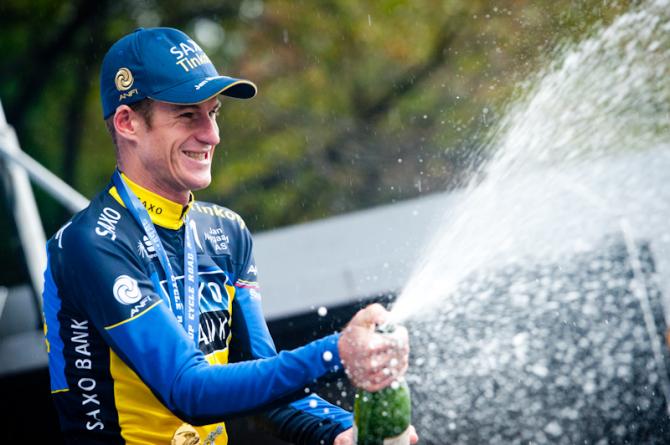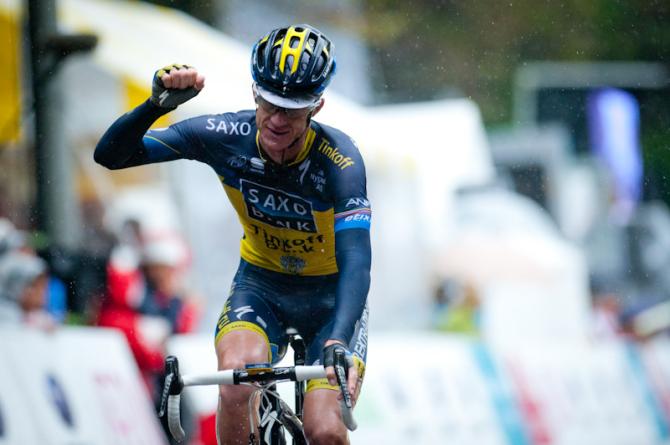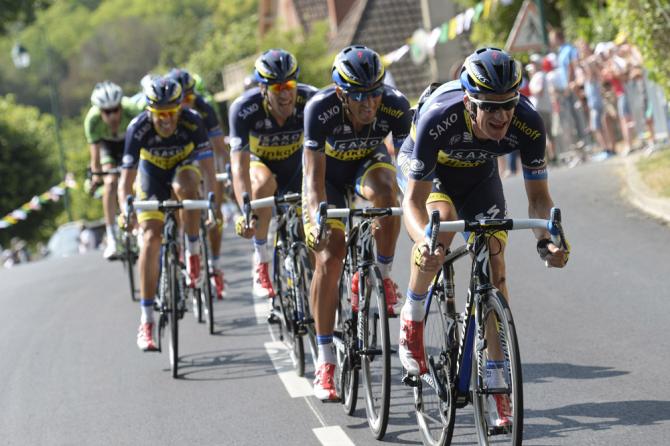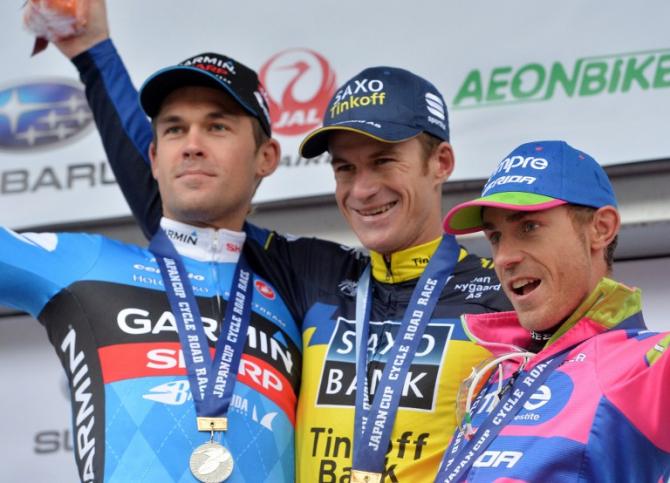Michael Rogers returns adverse analytical finding for Clenbuterol
Australian tests positive after winning the Japan Cup




Michael Rogers has been provisionally suspended after returning an adverse analytical finding for Clenbuterol, the UCI announced on Wednesday. The Saxo-Tinkoff rider returned the positive test following his victory at the Japan Cup on October 20.
The UCI also announced that Belgium's Jonathan Breyne (Crelan-Euphony) has returned a positive A-sample test for Clenbuterol and is also provisionally suspended. The 22-year-old was tested at the Tour of Taihu Lake in China, on November 5.
Rogers, who joined Saxo-Tinkoff from Team Sky last December, remains suspended until a Cycling Australia panel convenes to hear his case. If an analysis of the B sample confirms the positive test, Rogers faces a suspension of up to two years under Article 21 of the UCI Anti-Doping Rules.
"The decision to provisionally suspend this rider was made in response to a report from the WADA-accredited laboratory in Tokyo indicating an adverse analytical finding of clenbuterol in a urine sample collected from him in a test during the Japan Cup Cycle Road Race on 20 October 2013," reads the UCI statement announcing Rogers’ suspension.
Rogers' victory at the Japan Cup was his only win of the 2013 season in what was his final race of the campaign, and came after he attacked alone at the end of a rain-soaked day in Utsunomiya. He rode the Tour of Beijing before the Japan Cup race and could have eaten contaminated meat while in China.
Rogers, the Saxo-Tinkoff team and new team manager Stefano Feltrin were not available for comment when the news of the positive result was announced.
A solid performer in stage races
The latest race content, interviews, features, reviews and expert buying guides, direct to your inbox!
The 33-year-old from New South Wales has raced for Mapei, QuickStep, T-Mobile, Highroad, Team Sky and Saxo-Tinkoff during a professional career that has seen him claim three world time trial titles and earn a reputation as a solid performer in week-long stage races.
Rogers' best finish at a Tour de France came in 2006, when he reached Paris in ninth place overall. He later admitted that he was trained by the controversial Dr. Michele Ferrari in 2005 and early 2006, but denied that he had doped under the Italian’s supervision.
At Team Sky, Rogers played an important role in Bradley Wiggins’ 2012 Tour victory, acting as the team’s influential road captain, but surprisingly left the team for Saxo-Tinkoff in December of last year. Both Sky and Rogers denied that his departure was linked to the team’s zero tolerance policy, in which riders and staff were required to sign a declaration that they had never been involved in doping.
Speaking to Cyclingnews in June, Rogers said that his decision to leave Sky for Saxo-Tinkoff was "strictly financial."
Rogers' Saxo-Tinkoff leader Alberto Contador tested positive for Clenbuterol at the 2010 Tour de France, and was eventually stripped of his title and handed a retroactive two-year ban in February 2012.

Barry Ryan was Head of Features at Cyclingnews. He has covered professional cycling since 2010, reporting from the Tour de France, Giro d’Italia and events from Argentina to Japan. His writing has appeared in The Independent, Procycling and Cycling Plus. He is the author of The Ascent: Sean Kelly, Stephen Roche and the Rise of Irish Cycling’s Golden Generation, published by Gill Books.